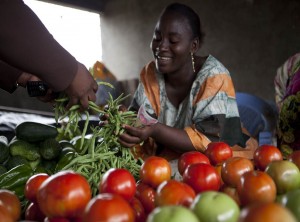There is a lot that has changed at HOPE since our founding in 1997. We’ve built our team. Added 15 more countries of service. Diversified our services. But our core beliefs have remained consistent.

- Charity is broken. Necessary for short-term relief, charity is like putting a Band-Aid on a broken bone. It doesn’t address the underlying issues of poverty—hopelessness, helplessness, and voicelessness. Instead it reinforces these mindsets long term. Our help can actually hurt those we’re attempting to serve.
- Job creation is a proven way out of financial poverty. Poverty was cut in half—from 52 to 26 percent—between 1981 and 2005. What happened? Economic opportunity in China, Brazil, and India have revolutionized poverty reduction. But it’s also common sense. A job is simply superior to a handout. Consistently, we hear this when we listen to the families we serve. They don’t want to be thrown another fish, but rather given the opportunity to start a fishing business.
- You can gain the whole world, yet lose your soul. Poverty is more than financial. At its heart, poverty is about relational brokenness: our separation from God and from each other. Jesus Christ calls us to restore relationships and has given us the message and the model through his life, death, and resurrection. We are fully committed to addressing not only physical poverty, but also spiritual poverty in all we do.
- Do one thing – and do it well. HOPE’s model works because it’s simple. We focus on one thing: excellent Christ-centered microenterprise development. Our model includes teaching biblically based business training, sharing the Word of God, providing access to small loans and savings services to those excluded from the formal financial sector.
Fifteen years ago, HOPE offered 12 loans to people in poverty. While so much has changed since then, our core beliefs have kept us anchored.















